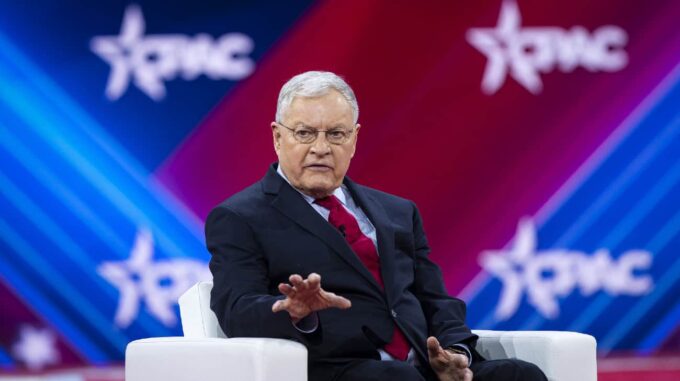The United States of America is actively discussing the possibility of deploying international forces to ensure security and stability in Ukraine, particularly in its western regions

This was stated by the U.S. President’s special envoy, Kit Kellogg, during an interview on Fox News, emphasizing the prospect of involving military contingents from Europe if an agreement is reached to resolve the conflict. According to him, within the framework of potential peaceful resolution of Russia’s full-scale war against Ukraine, the idea of deploying foreign forces on Ukrainian territory west of the Dnipro River is being considered. Kellogg stressed that the U.S. primarily supports the concept of a "comprehensive ceasefire," which would be the first step towards open discussions on other issues, including the status of temporarily occupied territories, preventing an energy catastrophe at Zaporizhzhia Nuclear Power Plant, the return of Ukrainian children deported by Russian occupiers, and Ukraine’s prospects of joining NATO. The special envoy highlighted the importance of forming "resilience forces," which could include representatives from the United Kingdom, France, Germany, and Poland. According to him, these contingents could be stationed specifically west of the Dnipro, making them inaccessible to Russian troops and thus ensuring greater security for Ukrainians in that part of the country. Kellogg also noted that if necessary, peacekeeping forces could be established in Ukraine’s northern and eastern regions, involving a third country capable of controlling the ceasefire process and stabilizing the situation on the ground. According to the American diplomat, this could contribute to more effective conflict resolution and prevent escalation. At the same time, within Polish political circles, there remains an unwavering position against sending Polish troops directly into combat zones in Ukraine. Currently, Polish officials are not confirming intentions to involve their forces in operations in this area, leaving the question of Poland’s possible role in "deterrence forces" open and under discussion. As previously reported, on May 13, Reuters and CNN announced that representatives of U.S. President Donald Trump’s administration, including special envoys Steve Witkoff and Kit Kellogg, plan to visit Istanbul to participate in negotiations between Ukraine and Russia. The main goal of these consultations is to find compromise solutions to cease hostilities. According to Ukraine's Presidential Office Head Andriy Yermak, Russia’s refusal to participate in Turkish negotiations would be a signal of its incapacity and unwillingness to end the war and seek ways to resolve it. Thus, all these diplomatic and military initiatives demonstrate the U.S. and its allies’ efforts to provide additional security guarantees for Ukraine and create conditions for possible de-escalation of the conflict in Donbas and beyond the Dnipro River. However, the specific format and Poland’s role in this process remain open, with Ukrainian and international experts closely monitoring developments to ensure that any international decisions align with Ukraine’s national interests.

